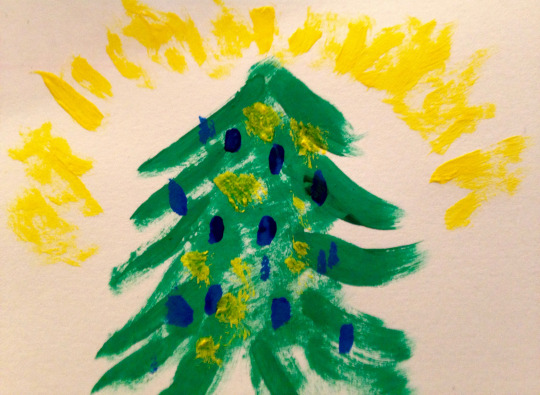I live in a house full of strangers.
I call them my family, and the fact that I feel so obligated to do so makes me question how we decide to define that. When people hear that I don’t get along with my family, a lot of people imagine a lot of yelling and fighting, but in that household there’s none of that going on—I can’t even remember the last time any of us have raised our voices at each other. We don’t fight. We don’t yell. We don’t storm out of rooms to get away from the other. We certainly don’t hate each other.
We don’t talk.
We don’t know each other.
There’s always a silence that encompasses the entire house. There’s not a whole lot of communication that goes on, and the language barrier—both my parents primarily speak Vietnamese—doesn’t help much. It has gotten to a point in our relationships where I don’t feel comfortable telling my parents anything at all, and I’ll be lucky if I even get a grunt from my older brother. I don’t tell them how I’m really doing in school; my answer to them will always be, “it’s good.” I don’t tell them when I blow my money on something like an annual Disneyland pass. I don’t tell them when I get A’s on my papers or in my classes. I don’t tell them that I skip classes because there are some days where I just can’t get myself out of bed. I don’t tell them I go to counseling every three weeks or so because I’m depressed. I don’t tell them that I’m not eating well. I don’t tell them I’m not sleeping well. I don’t tell them, and don’t ever plan to tell them, that I’m queer.
I don’t tell them anything about me. People will ask me why, and I want to tell them that it’s because they’re strangers to me, but people don’t understand that. I know they won’t understand because I can barely comprehend our relationship. So, instead, what I tell most people is, “we just don’t get along.”
A lot of my peers have bluntly told me that maybe I should try harder to talk to them. That’s a thought that has crossed my mind for years—maybe I’m not trying hard enough? It wasn’t until I started attending UCLA that I really noticed something was off about how I felt around my family. I realized that when I came here, I didn’t have much of a desire to go back. There were certain things I missed, of course, but the thought of going back into that house and staying there for longer than a week made me uneasy. I wasn’t comfortable there, I’m still not.
Somehow, without a whole lot of words, they’ve found a way to make me afraid of them.
Not particularly afraid of them, I guess, but more so afraid of disappointing them. I’m sure many children of immigrants from another country, especially the ones that came here without much of a choice, can empathize with the immense pressure that is put on you to be successful and fulfill the “American dream,” whatever the hell that even means these days. It’s hard to turn away from that. How do you turn away from people that gave up their whole lives for you? And it’s not that I don’t appreciate all they’ve done, but there are times that I feel like what they expect from me is far from the realm of possibility. How do you repay the people that gave up so much for you? It makes them intimidating to me, in a way. It makes me not want to confide in them—with anything.
This makes the holidays a little difficult for me. Everything about the holidays is so centered around family, especially here in this college environment where everyone can’t stop talking about how they can’t wait to spend time with their families and all the plans they have with them. For me, when I picture going home to my family, all I can see in my head is me eating dinner alone in my room, or going to a family party where all I do is sit alone at the table while I watch everyone else mingle and have a good time with each other.
I’m always conflicted when this time of the year comes up. On the one hand, I want to go back home to see all my friends and go to all my favorite places to eat, but on the other hand, I’m nervous about returning to the silence.
Who knew silence could be so suffocating?
For a lot of people, going back is a sense of relief. For me, going back home means bottling up everything about me again, it means going back to where I feel uncomfortable about being myself. Home is not somewhere I consider to be a safe space anymore, and as a queer woman of color, I don’t have very many of those. For me, I don’t get to go back to somewhere I can be myself. I’ve felt more like myself here at UCLA than I ever have when I lived with my family.
So when the holidays come around, I’d rather not deal with the stress, the burden, of keeping secrets and tip-toeing around my family.
So when people ask me if I’m excited to go home, all I can ever say is, “yeah, I can’t wait!”

